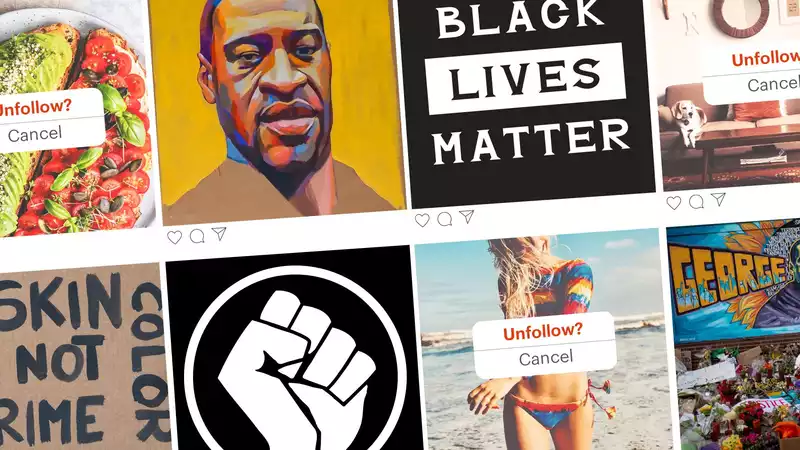
Social Media Influencers and Non-Alignment Issues
This week, I find myself no longer as interested in things as I used to be, no longer affected by the things that used to occupy my mind during the self-isolation period of COVID-19. Gone are the giddy thoughts of filling my online shopping cart with clothes, shoes, and accessories. Now I scroll through social media and wonder, "Do people still not get it?"
Do they know what it feels like to just watch as other black lives are taken? What it means that it is a uniquely American tragedy." The question of where people stand on the subject of systemic racism and whether they really understand the magnitude of what is happening in this country has dominated my thoughts for the past week. It came after I saw George Floyd pinned under the knee of a white male police officer in Minneapolis for 8 minutes and 46 seconds.
For me, George Floyd's death by police brutality and the ensuing outrage across America raised questions about the theme of influencers and allieship. Let's face it: we are all influenced by something or someone on social media. It is no coincidence that the influencer marketing industry will be worth $15 billion by 2022.
We know more about a millennial It Girl we've never met than we do about our own family, from the skin care regimen she practices to the day she installed the farmhouse sink of her dreams. But do they know the gravity of what it is like to be black in America?
Most importantly, how have they demonstrated that they care?
After George Floyd's death, I watched for days as influencers of all races and backgrounds that I follow remained silent. They continued to share outfit posts, fitness routines, and inspirational quotes. They continued to invade my feed with HD quality content and full makeup, encouraging me and everyone else to "like, comment, share, and subscribe."
But they remained silent on social justice issues that weighed heavily on their followers' minds.
To me, it was insulting. In this digital age, influencers are leaders in social expectations. They essentially tell us what we should care about and why. Ignoring the overt social justice issues that have been the general focus of our country lately shows that that is not what you care about.
Digital strategist Lanae Spruce says it is more important than ever for influencers to use their platforms to speak out against racial injustice." If they are using silence, that is very telling."
Spruce adds, "Influencers are a way for people to feel connected to something through social platforms. But I am also passionate about ending racial injustice.
In fact, our core values are not aligned. And my choice to unfollow that influencer is a personal one.
I say that because racism and racial injustice are not the only topical issues that need attention this week. The murder of George Floyd is not new. The Amy Coopers of the world are not new either. The "Black Lives Matter" movement began in 2013, so everyone has had at least seven years to educate themselves, stand up, and show that black lives matter to them too.
"I really know people who show up for their community," says Ashley McGirt, a licensed mental health therapist who specializes in helping clients navigate and overcome racial trauma.
"Did it not resonate with you when Colin Capernick was brought to his knees or when Trayvon Martin was killed?"
I was free to unfollow influencers and brands that did not take a black stand. However, I recognize that not everyone feels that way. According to McGirt, there is a psychological attachment to an individual, especially one who has a large presence and following on social media, even if that person has been silent this week or has posted content contrary to what he or she believes.
"We feel like we're missing out on something, and nobody wants to miss out on anything. And now, as things get worse in the media, we're able to look inward." [Why did we need to stay connected with those who remained silent after the murders of Trayvon Martin, Michael Brown, Tamir Rice, Eric Garner, Ahmoud Arberry, and many others? They have shown me time and time again that they do not care if another black life is lost at the hands of this racist state.
Who I follow now has to do with knowing who will show up for me and every black person. I would rather invest in people who do the work every day to dismantle systemic racism and don't show up just because the death of a black person is trending, interrupting their own great feed.
To the influencers who will never use promo codes again: if you don't care about my life, your influence means nothing.
.
Comments